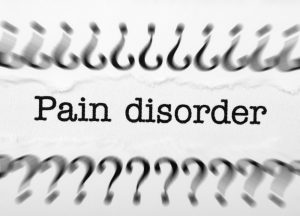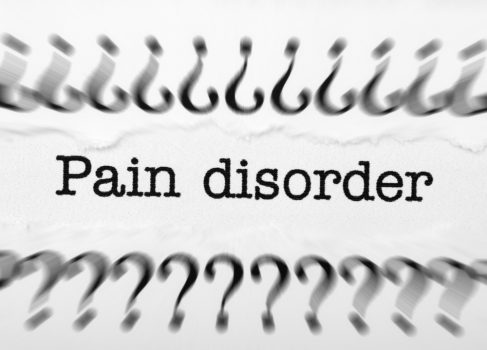What Is Temporomandibular Joint Dysfunction?
The Temporomandibular Joint joins the jaw to the temporal bones of the skull, which lie in front of each ear. It eases the movement of the jaw up and down and side-to-side, enabling chewing, smiling, talking, yawning and making many facial expressions. The damaged or injured joint can lead to Temporomandibular Joint Dysfunction.

Causes
Autoimmune Diseases
They occur due to the malfunctioning of the body’s immune system, which leads it to attack its tissues. Joints and connective tissues are affected by these diseases. Therefore, the Temporomandibular Joint can also be affected by these diseases causing severe pain, redness, and inflammation. Sometimes they may be so severe that the joint cannot be moved even in usual ways.
Dental Surgery
Surgery may cause swelling and pain in tissues in the surgical site as well as in the surrounding areas, thus being a common cause of acute Temporomandibular Joint Dysfunction. The removal or modification of teeth can cause them to settle adversely, changing the way in which the teeth line up while chewing and talking. It may result in the misalignment at the Temporomandibular Joint.
Teeth Grinding
Many people grind their teeth unconsciously in their sleep. This condition is also called bruxism, which can cause damage to the teeth and the Temporomandibular Joint.
Arthritis
Arthritis can be developed in the Temporomandibular Joint resulting in the breakdown of the joint due to aging and other factors. Symptoms such as stiffness and inflammation in the joints can be noticed as a result of arthritis.
Infections
Infections of the Temporomandibular Joint may lead to fever, headache, and chills, quickly spreading to the jaw bone and other parts of the skull and causing sepsis: an infection of the blood.
Physical Injury
Physical injury can cause chronic Temporomandibular Joint Dysfunction resulting in severe pain and disability if the jaw does not heal properly. A broken jaw can cause inflammation at the joint. Temporomandibular Joint Dysfunction can also be caused by the damage or strain to the muscles of the body and secondary injuries such as whiplash.
Symptoms
Some of the symptoms of TMJ disorder are:
- Facial pain
- Locking of the joint, making it difficult to open or close the mouth
- A toothache
- Pain in and around the ear
- Pain in Temporomandibular Joints
- Crackles or tenderness in the joints
- Headaches and muscle spasms
- Swelling of the face
- Grating, clicking, or popping sounds in the jaw joint when the mouth is opened or closed during chewing
- Stiff or sore jaw muscles
- Increased dizziness (vertigo)
- Sensitivity to sound

Prevention
Temporomandibular Joint Dysfunction can be prevented by:
- Maintaining proper posture and learning about ergonomics
- Learning relaxation routines such as deep breathing, meditation, yoga, rhythmic exercise and other activities to reduce muscle tension and stress and to improve sleep
- Avoiding food that is difficult to chew
- Preventing biting objects such as cuticles, fingernails, pencils and pen caps
- Avoiding excessive chewing gum
- Massaging the jaw, cheeks, and temples regularly
- Chewing on both sides of the mouth and taking smaller bites
Treatments
Therapies
- Physical therapy: Treatments may include ultrasound, moist heat and ice accompanied by exercise to stretch and strengthen the muscles of the jaw.
- Occlusal appliances such as Oral Splints or mouth guards: Wearing a soft or firm device inserted over the teeth is often beneficial to the people with jaw pain.
Medications
- Tricyclic antidepressants: Antidepressants such as amitriptyline may be used for pain relief.
- Muscle relaxants: Such types of drugs may be used for a short duration to relieve the pain caused by Temporomandibular joint Dysfunction.
- Pain relievers and anti-inflammatory: Non-steroidal anti-inflammatory drugs such as ibuprofen may be prescribed by the doctor or dentist to relieve the pain caused by Temporomandibular Joint Dysfunction.
Surgical Or Other Procedures:
- Open-joint surgery: In case of a structural problem in the joint, open-joint surgery may be recommended to replace or repair the joint.
- Modified Condylotomy: The surgery takes place on the mandible and not on the joint, and thus addresses the Temporomandibular Joint Dysfunction indirectly. It is particularly helpful in treating pain and locking.
- Temporomandibular Joint arthroscopy: In this surgery, small surgical instruments are used to place a small thin tube (cannula) into the joint space and then an arthroscope is inserted.
- Arthrocentesis: It is a minimally invasive procedure involving the insertion of small needles into the joint so that the fluid can be irrigated through the joint for the removal of debris and the by-products causing inflammation.
Dr. David Pendleton, a Rockdale Dentist, opines that even though the symptoms of Temporomandibular Joint Dysfunction are self-diagnosable, they should not be neglected and a dentist should be consulted without any delay to prevent any further complications.

